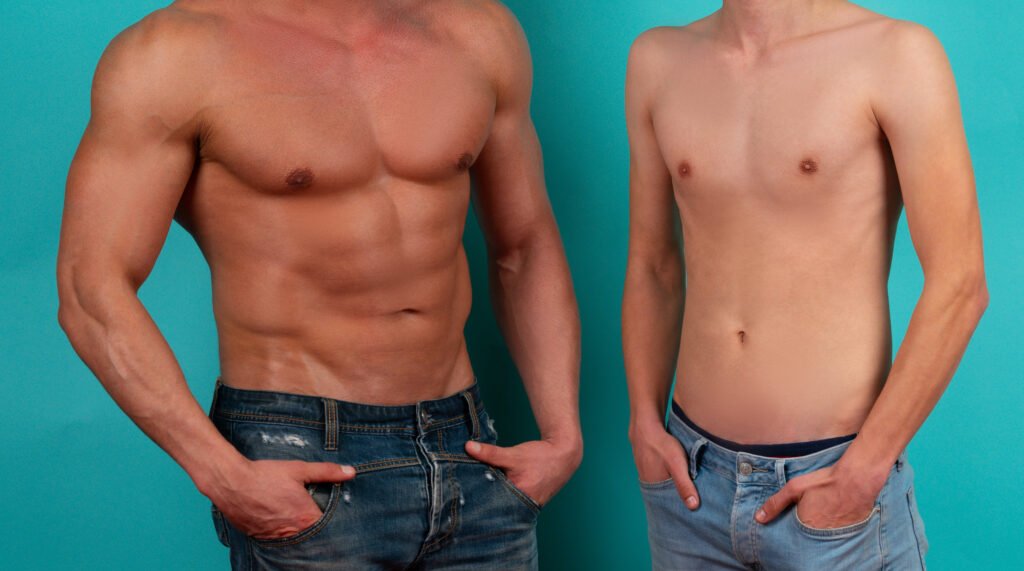
It’s not only women who undergo hormonal changes in their bodies as they age, but men deal with this health issue too. Male menopause is also called andropause, testosterone deficiency, androgen deficiency, and late-onset hypogonadism. Though it’s not as regularly discussed as female menopause, it still deserves attention since many men suffer almost the same symptoms as women do and, at times, their symptoms are even worse.
It’s believed that men’s hormones, which are called testosterone, decline 1% every year by the time they reach 40. Testosterone is the primary male sex hormone that makes them capable of reproduction, distributes muscle and fat in their bodies, and produces healthy red blood cells.
As men age, their testosterone levels decrease, and they may feel symptoms quite similar to that of female menopause, such as mood swings. Most doctors will require men to change their lifestyle choices to alleviate the effects of male menopause.
According to specialists, these suggestions will help treat symptoms of male menopause:
- Following a healthy diet
- Having regular exercise
- Getting enough sleep
- Reducing stress
These recommendations have shown to be effective for some men, but many others still suffer from symptoms that can’t be improved even with the healthy lifestyle choices they make. Some men resort to hormone replacement therapy while others take HGH or human growth hormones to relieve symptoms. If you want to know more about taking HGH supplements, learn the facts here.
Here are some symptoms of male andropause that you need to know:
- Irritability
Like women who suffer from menopause, men undergo physical and emotional changes when they reach the stage of andropause. Mood swings occur due to several factors, including reduced energy as a result of difficulty sleeping, struggling to lose weight, having a low sex drive, and experiencing erectile dysfunction.
Because of a change in attitude, their relationships suffer. The loving relationship with your partner can be compromised by the changes in your mood and your lack of desire to have sex.
- Muscle Loss
Muscle loss or sarcopenia is the loss of muscle strength and overall muscle mass when male hormones are reduced. The decline in testosterone causes muscle cells not to bind appropriately, resulting in a loss of muscle mass.
This usually begins when a man reaches the age of 25 and worsens if they live a sedentary lifestyle. An inactive male loses about .5% muscle mass and strength every year, and as they get older, the loss of muscle mass and strength only increases.
That’s why many experts recommend regular exercise to ensure muscle atrophy doesn’t manifest. HGH is another helpful treatment for the condition since it rebuilds muscle mass and strength.
- Erectile Dysfunction
Infertility that’s brought on by andropause affects many men and leads to erectile dysfunction. Erectile dysfunction is said to materialize in about 38% of the population. This symptom is also called impotence, and it happens when a man can no longer maintain an erection strong enough for sex. Thus, men lose their confidence and face relationship problems with their partner.
- Gynecomastia
Since there’s a decline in male hormones, the imbalance may cause a man’s breast to grow. This physical change makes men feel embarrassed, refuse to go out, and experience depression. About 24% to 65% of men aged 50 to 80 are diagnosed with gynecomastia.
If you have gynecomastia, you might have breast tenderness, swollen breast tissue, and nipple sensitivity. To treat it, you can undergo hormone replacement therapy.
- Memory Loss
The third most common symptom of andropause is memory loss. Because testosterone is essential in maintaining cognitive function, its decline may result in concomitant dementia or mixed dementia. Aging males who underwent hormone replacement therapy show better improvement in their cognitive function.
- Hot Flashes
Low testosterone levels could give rise to hot flashes in men, and this particular health condition may coincide with other symptoms, like loss of libido, mood swings, and erectile dysfunction.
Hot flashes in men turn up the same way they do in women. You’ll feel sudden warmth in your head and trunk areas. You’ll sweat heavily and notice your skin redden as well. These symptoms may pass quickly but might linger and end in cold sweat. Usually, they appear infrequently, but some men have reported experiencing them more than 10 times a day.
Furthermore, hot flashes are generally triggered by drinking alcohol and coffee, smoking, wearing tight clothes, and eating spicy food.
Conclusion
Andropause is something that comes with age. Its symptoms can be mild or severe, but some may severely affect your mental health, as well as your relationship. Taking HGH and living a healthy lifestyle will help you manage this medical condition.



